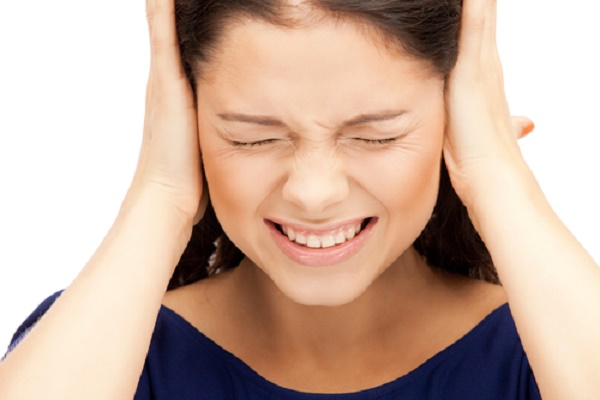What Sounds Can Cause Hearing Loss?

Noise-induced hearing loss (NHL) occurs when we are exposed to harmful levels of sound – long or repeated exposure to sounds over 85 decibel can cause damage to sensitive inner ear structures. The louder the noise, the less exposure is required to have a negative impact on our hearing. Those most at risk for NHL include those working in loud environments such as a woodworking shop. Luckily, NHL is preventable in these circumstances by using adequate ear protection at all times.
Sudden noise-induced hearing loss can be caused by one-time exposure to extremely loud noises such as explosions or loud, concussive noises. This occurs because sound is a wave which vibrates specially tuned inner ear structures. These structures translate that wave into voices, music, and other noises. When a wave that is too powerful hits those structures it can cause temporary or permanent damage depending on the force it carries.
The effects and symptoms experienced from noise induced hearing loss depend on whether you are exposed to a one-time intense sound or experienced continuous exposure to less intense but still damaging noises.
Hearing loss from prolonged exposure is usually gradual and may be accompanied by tinnitus – an occasional ringing, buzzing, or roaring in the ears that may subside over time or become permanent. Tinnitus can occur in one ear or both. Additionally, sounds may become distorted and it may become particularly difficult to understand conversation as the higher frequency sounds tend to become distorted first.
It may not be immediately apparent that you are losing your hearing if it occurs slowly over a long period of time. Watch for these telltale signs and consider seeking a professional assessment if you experience some or all of them.
Signs you may be losing your hearing include:
Exposure to sudden, intense sounds is more likely to cause temporary hearing loss lasting 16-48 hours with some residual permanent damage to your hearing. In some cases hearing loss may be permanent.
Noise induced hearing loss is the only type of hearing loss that can be prevented so we should do what we can to protect our fragile ears. If you work with or around loud machinery be sure to wear appropriate hearing protection at all times to prevent damage. Avoid listening to music in loud environments as we have a tendency to turn it up too loud in order to drown out other noises: especially when using headphones.
Continuous usage of headphones at too loud of a volume can be just as damaging to your ears as any other loud noises. When entering an environment in which you may be exposed to loud noises be sure to look for and comply with safety precautions that require ear plugs or protection.
You must have noticed that nowadays kids are always found wearing a headset with loud volumes, and you will also notice that children depending on hearing aid services are also increasing. This gave me the idea of writing this article and make people aware of the hearing issues.
License: Royalty Free or iStock source: www.shutterstock.com
Researcher of world economy but not always into the market development, also likes to have some fun with paint and brushes, camera clicks and some flying kicks. I like to be fit and sporty too, but mostly, I love to pen about everything new that I come across. – Sandra Otoole
